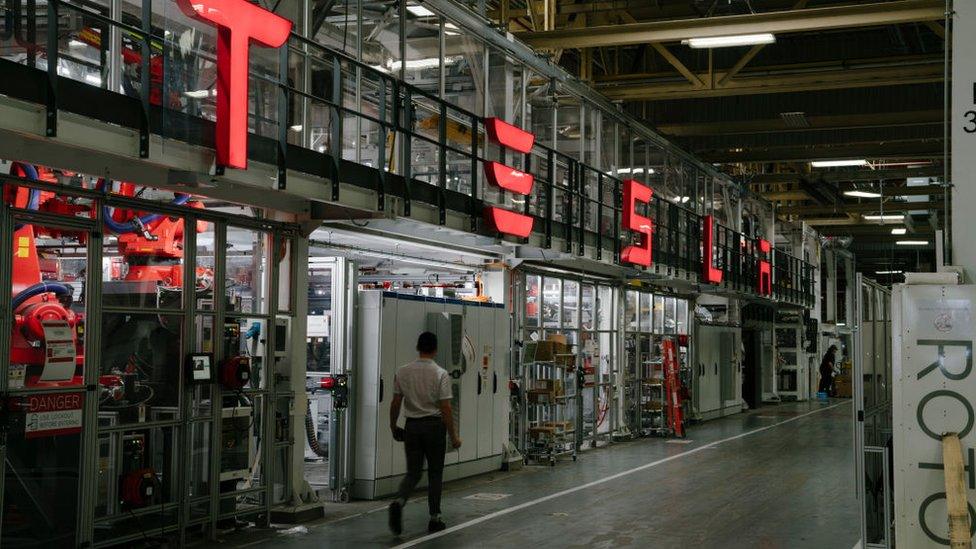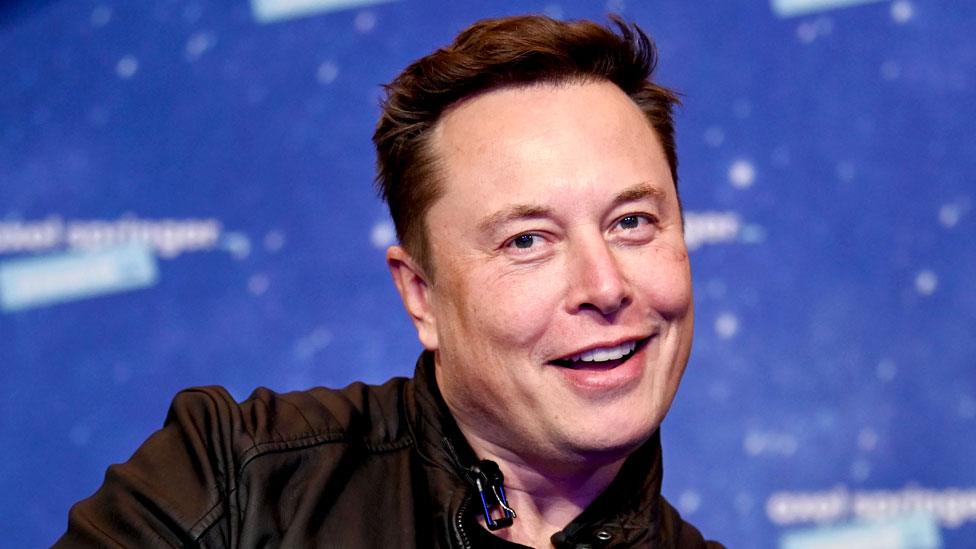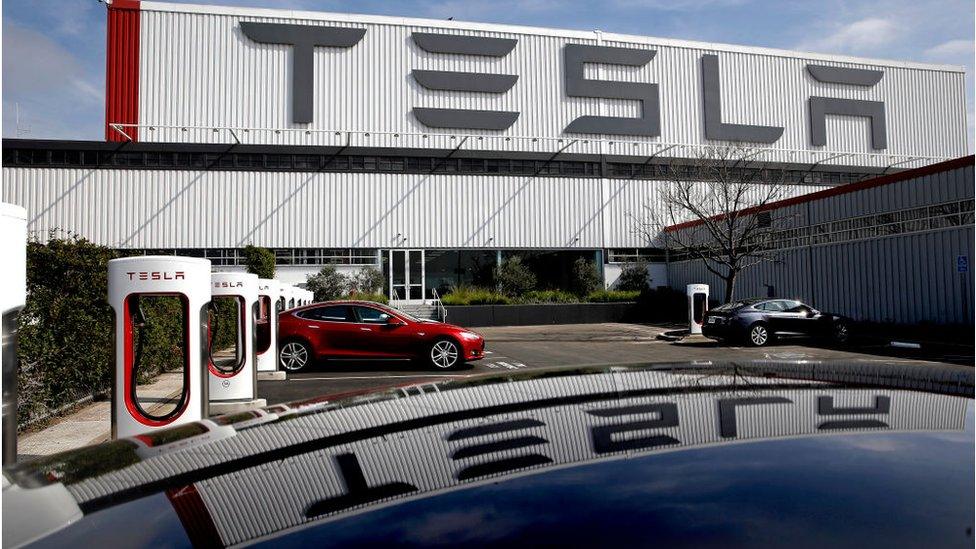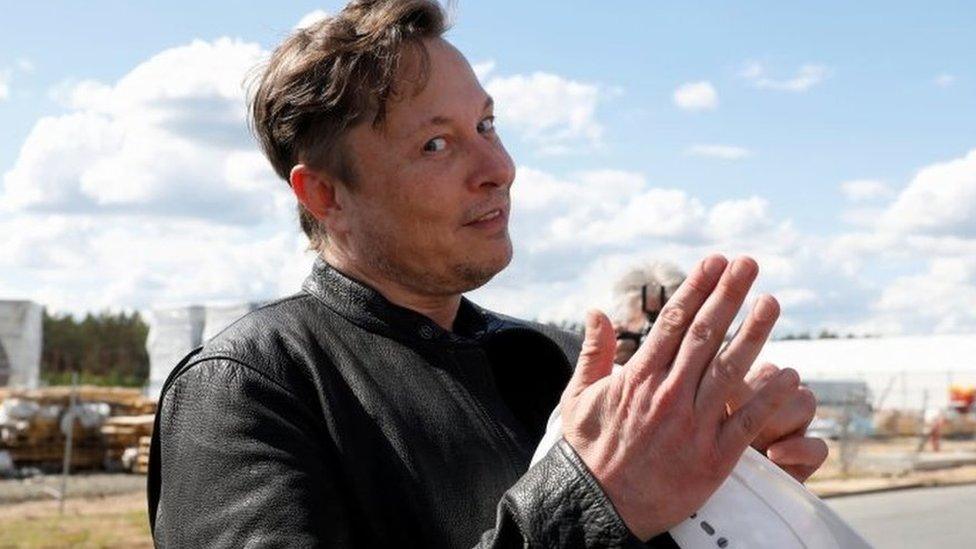Tesla worker files suit over 'nightmarish' harassment
- Published

Female workers at Tesla's Fremont factory in California face "nightmarish" conditions of rampant sexual harassment, according a lawsuit brought by a female employee.
Jessica Barraza, who worked night shifts at the factory, said she experienced "near daily" catcalls and inappropriate touching.
Ms Barraza is seeking compensatory and punitive damages from the firm.
Tesla did not respond immediately to requests for comment.
Male workers would routinely proposition her, stare at her breasts, describe her as having an "onion booty" or "Coke bottle," and brush up against her body while pretending it was accidental, Ms Barraza told the Washington Post, which first reported the case.
In one incident, a man lifted her up, placing his hands around her torso. In another a man put his leg between Ms Barraza's thighs as she clocked in after her lunch break, which she said was what triggered her decision to take action.
"After almost three years of experiencing all the harassment, it robs your sense of security — it almost dehumanises you," Ms Barraza told the Post.
Ms Barraza is alleging that Tesla fostered a climate of sexual harassment. She says she filed two complaints in September and October but that the issues she raised were not addressed.
The 38-year-old mother of two is currently on medical leave.
Ms Barraza said that like many firms in the tech sector, Tesla required employees to sign arbitration agreements, keeping workplace disputes out of court. However, she said "unconscionable" terms made the agreement unenforceable.
According to the Washington Post, several other workers corroborated Ms Barraza's account.
Last month Tesla was ordered to pay $137m to Owen Diaz, an African-American employee at the Fremont plant, for failing to stop him being abused.
Mr Diaz, a lift operator from 2015 to 2016, had been subjected to a racially hostile work environment, a San Francisco court found.
Tesla disputed the verdict but said it recognised it was "not perfect". The company had made progress since 2016, adding an employee relations team, dedicated to investigating complaints, it added.
Mr Diaz's lawsuit alleged African-American workers "encountered a scene straight from the Jim Crow era" at the electric carmaker's Fremont factory, including racial name-calling, and racist graffiti in bathrooms.
Related topics
- Published8 October 2021

- Published17 November 2021

- Published5 October 2021

- Published7 November 2021

- Published25 October 2021
